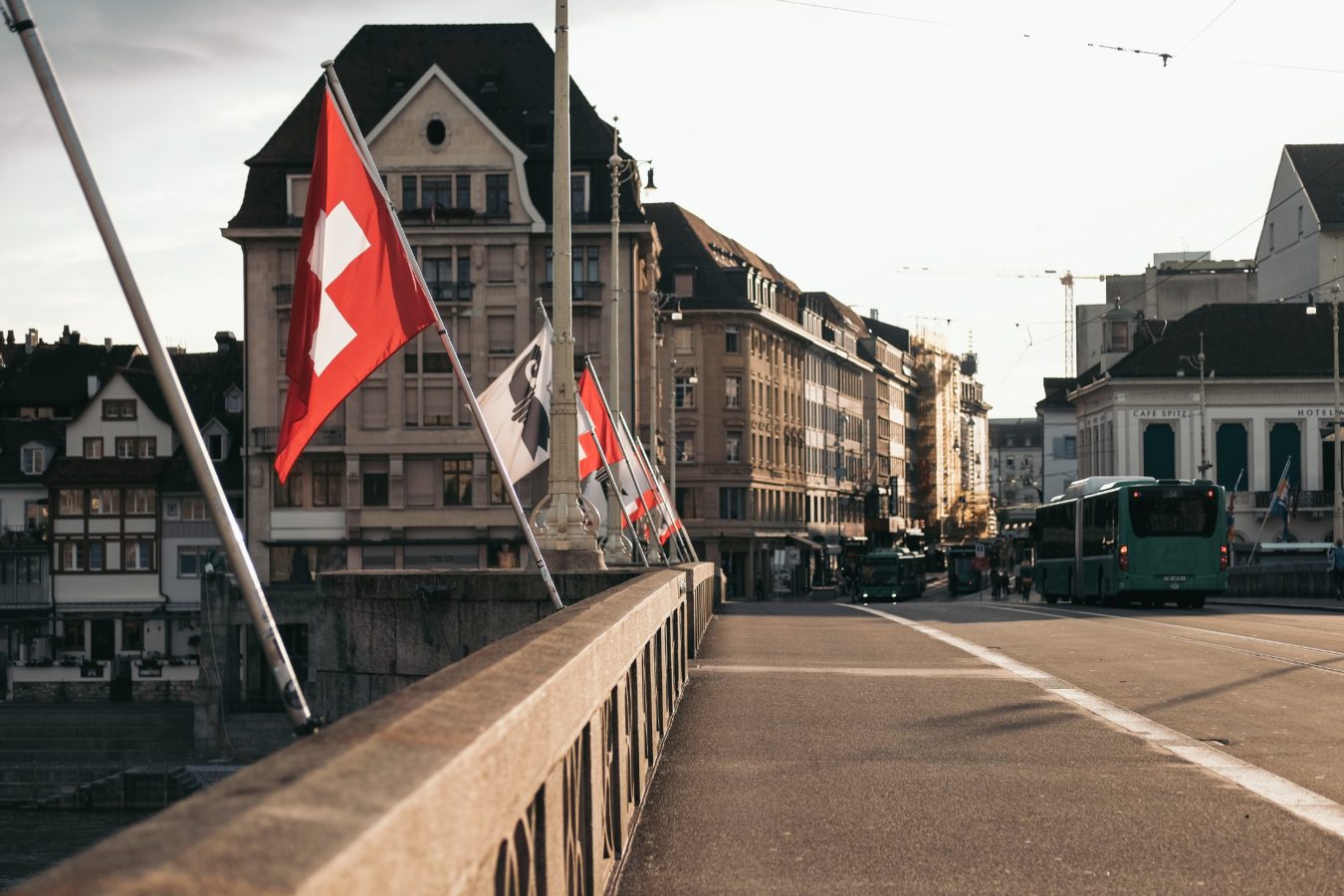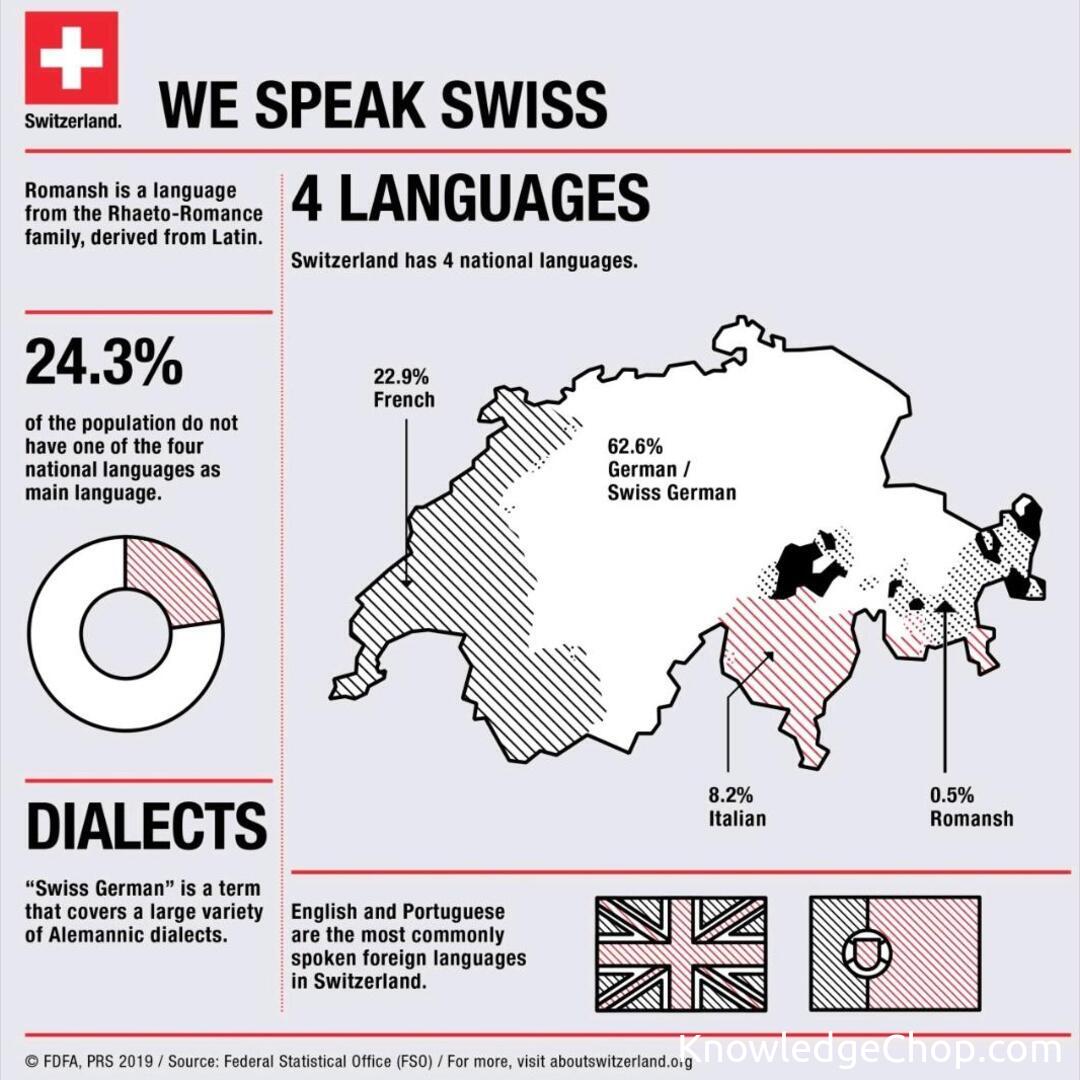Switzerland, a country celebrated for its stunning mountains and delicious chocolate, holds a truly fascinating secret: it is a place where many different tongues are heard. It's not merely a country, you know, it's a linguistic symphony, a nation where four official languages blend into a rich cultural mosaic. Unlike some places that have just one main language, Switzerland thrives on this variety, and it's something that makes a visit there quite special, in a way.
As a tourist, you might wonder how you'll manage to communicate, or what to expect when you arrive. Well, this article is here to help you get a good grasp of the language situation. We'll look at the main languages, where they are spoken, and whether you can get by with English, which is, you know, a common question for many visitors.
Understanding the linguistic landscape of Switzerland can really enrich your experience. It helps you appreciate the distinct regional characters and the historical influences that shaped this amazing country. So, let's take a closer look at the diverse voices that make up Switzerland's soundscape, actually, and how they all fit together, more or less.
- Greg Olsen Net Worth Biography Career Awards And More
- Guthrie Robert Packer Hospital
- Fuquay Varina High School
- When To Use Screenshots In Lapse Reporting
- Unraveling The Mystery Nicole Moraccini Missing Case Update And Biography
Table of Contents
- Switzerland's Official Languages
- Bilingual Cantons: A Unique Blend
- English in Switzerland: For Visitors
- Beyond the Official Tongues: Dialects and More
- Frequently Asked Questions
- A Linguistic Tapestry
Switzerland's Official Languages
Switzerland, as a matter of fact, officially recognizes four national languages. These are German, French, Italian, and Romansh. It's quite interesting how these languages are not spread evenly across the country, you know. Each one tends to dominate specific regions, which are called cantons. The predominant language in a canton often depends on its geographic position and, perhaps, the countries closest to it, which is pretty logical.
The official languages in Switzerland are German, French, Italian, and Romansh. This means that government documents, public signs, and official communications will often be available in these languages, depending on the area you are in. It's a system that reflects the country's deep commitment to its multilingual heritage, which is something quite special, actually.
This linguistic variety is a core part of what makes Switzerland so unique. It shapes the culture, the local customs, and even the daily life in different parts of the country. Knowing which language is spoken where can really help you understand the local vibe and, perhaps, connect a bit more with the people you meet, which is always a good thing, I think.
- Unveiling Rainn Wilsons Fortune And Physical Attributes
- San Francisco Federal Credit Union
- Michael Mmoh Wikipedia Net Worth Wife Height
- Discover The 20 Amazing Health Benefits Of Ukpaka Ugba
- Ulta 21 Days Of Beauty 2025
German-Speaking Switzerland
German is by far the most widely spoken language in Switzerland, you know. It's truly the language you'll hear most often across the country. In fact, 19 of Switzerland's 26 cantons are predominantly German-speaking. This means that if you're traveling through the central, eastern, or northern parts of Switzerland, you'll find German to be the main form of communication, which is pretty important to know.
It's worth noting, however, that the German spoken in Switzerland is often Swiss German. This is not quite the same as the German spoken in Germany. Swiss German is a collection of various dialects, and they can sound quite different from standard German, sometimes even to native German speakers from other countries. So, while it's still German, it has its own distinct flavor, so to speak.
For visitors, understanding that Swiss German is the everyday language is quite helpful. While official documents and news broadcasts might use standard German, everyday conversations, especially in smaller towns, will be in one of the many Swiss German dialects. It's a rich linguistic tradition, and it's very much alive in these regions, which is fascinating, actually.
French-Speaking Switzerland
Moving west, you'll find yourself in the French-speaking part of Switzerland, often called Romandie. This area borders France, and it's where French is the main language. Cantons like Geneva, Vaud, and Neuchâtel are firmly in the French-speaking zone, and you'll hear French everywhere, from the bustling city streets to the quiet countryside, which is just how it is.
The French spoken here is very similar to the French you'd hear in France, so if you have some French language skills, you'll likely feel right at home. It's a beautiful language, and it adds a different kind of charm to these regions. The cultural influences in these areas also lean more towards French traditions, which is quite evident, you know, in the architecture and the food, for instance.
For anyone planning a trip to cities like Geneva or Lausanne, having a few French phrases ready would be a good idea. While English is often understood in tourist spots, speaking a little French can open doors to more authentic experiences and show a real appreciation for the local culture, which people always seem to like, in a way.
Italian-Speaking Switzerland
In the southern part of Switzerland, particularly in the canton of Ticino and parts of Graubünden, Italian is the language of daily life. This region, bordering Italy, has a distinctly Mediterranean feel, and the sound of Italian fills the air. It's a charming area, and the language really adds to its unique character, which is quite lovely, I think.
The Italian spoken in Switzerland is generally standard Italian, so if you're familiar with the language from Italy, you won't have much trouble understanding. It's a vibrant and expressive language, and hearing it spoken against the backdrop of Swiss mountains and lakes is quite a delightful experience. You might notice some slight regional variations, but nothing that would prevent easy communication, generally speaking.
For those visiting Lugano or Locarno, knowing some Italian phrases would be very helpful. It's a chance to immerse yourself in a different side of Swiss culture, one that shares much with its southern neighbor. The warmth of the Italian language really comes through in these parts, which is something many people enjoy, apparently.
Romansh-Speaking Switzerland
Romansh is the fourth official language of Switzerland, and it's perhaps the least known internationally. It's a Romance language, like French and Italian, but it has its own unique history and character. You'll find Romansh primarily spoken in parts of the canton of Graubünden (Grisons), which is in the eastern part of the country. It's a language that has a very strong connection to the local identity, you know.
While Romansh is an official language, it's spoken by a smaller number of people compared to German, French, or Italian. However, its status is very important for Swiss cultural diversity. Efforts are made to preserve and promote Romansh, as it represents a unique part of the country's linguistic heritage, which is quite admirable, actually.
As a visitor, you might not encounter Romansh as often as the other three languages, unless you specifically travel to the valleys of Graubünden where it's prevalent. Even there, most Romansh speakers will also speak German, or perhaps Italian, so communication won't be an issue. But hearing Romansh spoken, even just a little, is a reminder of Switzerland's incredible linguistic depth, which is pretty cool.
Bilingual Cantons: A Unique Blend
Some cantons in Switzerland are officially bilingual, which adds another layer to the country's linguistic mosaic. The cantons of Fribourg, Bern, and Valais are notable examples of this. In these areas, you'll find that both German and French are recognized and used in official capacities, and you'll hear both languages spoken by residents, which is quite a mix, honestly.
Take Fribourg, for instance; it's a canton where French and German communities live side by side, and both languages are part of the daily fabric. This creates a very interesting cultural dynamic, where people often switch between languages with ease. It's a practical demonstration of how Switzerland manages to integrate its diverse linguistic groups, which is a big part of its identity, you know.
Bern, the capital city of Switzerland, is another place where you'll experience this bilingual reality. While the canton of Bern is predominantly German-speaking, the city itself has a significant French-speaking population, and you'll find signs and information in both languages. It's a reflection of the country's commitment to accommodating all its national languages, which is pretty impressive, I think.
Valais, known for its stunning mountain scenery, is also officially bilingual. In the lower parts of the canton, French is more common, while in the upper valleys, German is more prevalent. This means that as you travel through Valais, the language you hear around you can gradually shift, offering a really unique linguistic journey, which is kind of neat.
These bilingual cantons are, in a way, miniature versions of Switzerland's larger linguistic harmony. They show how different language groups can coexist and even thrive together, sharing public spaces and services. It’s a testament to the Swiss spirit of cooperation and mutual respect, which is something you really notice when you are there, actually.
English in Switzerland: For Visitors
A common question for anyone planning a trip to Switzerland is whether English is widely spoken. The good news is that English is widely spoken as a second language across Switzerland. Many anglophone visitors find that they can mostly, but not always, get by with English, especially in tourist areas, hotels, and larger cities. This is pretty reassuring for travelers, you know.
While English is very common, it's important to remember that it is not an official language in Switzerland. This means you won't typically see public signs or official documents in English, unless they are specifically for international visitors. So, while you can communicate, don't expect it to be universally available in every single situation, which is just the reality of it.
In places like Zurich, Geneva, or Lucerne, and at major train stations or airports, you'll find that many people in service industries, and younger generations, have a good command of English. They are used to interacting with international visitors, and they are usually very helpful. This makes getting around and asking for directions quite easy, in most cases, which is a relief for many.
However, if you venture into smaller towns, rural areas, or off the main tourist paths, you might find fewer people who speak English. This is where knowing a few basic phrases in German, French, or Italian, depending on the region, can be incredibly useful. Even a simple "hello" or "thank you" in the local language can make a big difference and show respect, which people generally appreciate.
So, while you can certainly manage with English for the most part, especially as a tourist, having a little bit of local language knowledge can really enhance your experience. It allows for deeper interactions and a better appreciation of the local culture, which is something that many visitors actually seek out, you know. It’s a bit like having a secret key to understanding the place even better.
Beyond the Official Tongues: Dialects and More
Switzerland has four unevenly distributed languages and a wealth of dialects. In addition to the four national languages, you will encounter many dialects and foreign languages. This adds another layer to the country's already rich linguistic landscape. It's not just about German, French, Italian, and Romansh; it's also about the unique local variations and the languages brought by people from all over the world, which is truly fascinating.
The Swiss German dialects, as we discussed, are particularly prominent. These are not just accents; they are distinct forms of speech that can vary significantly from one valley to the next. Locals often take great pride in their specific dialect, and it forms a strong part of their regional identity. It's a bit like a secret code that connects people from the same area, which is kind of charming, you know.
Beyond the national languages and their dialects, Switzerland, being a global hub, also has a significant presence of foreign languages. People from various countries live and work there, bringing their own mother tongues. This means that in larger cities, you might hear a wide array of languages spoken on the streets, reflecting the country's international character, which is pretty cool, actually.
This linguistic diversity is part of what makes Switzerland a truly multilingual country. It's a place where different linguistic traditions coexist, often side by side, creating a dynamic and interesting cultural environment. It's a far cry from monolingual states, and it shows how a country can thrive on its linguistic variety, which is something to admire, I think. You can learn more about language in general on our site, and even link to this page for more information about specific language structures.
The presence of so many different languages and dialects means that communication can be a rich and varied experience in Switzerland. It encourages a certain flexibility and openness among its people, as they are often accustomed to switching between languages or adapting their speech. This makes for a very welcoming environment, especially for visitors who are keen to explore different cultures, which is a big plus, apparently.
Frequently Asked Questions
What are the four national languages of Switzerland?
The four national languages of Switzerland are German, French, Italian, and Romansh. These languages are officially recognized across the country, with each one dominating specific regions, which is pretty unique, you know.
Can I get by with English as a tourist in Switzerland?
Yes, as a tourist, you'll mostly get by with English, especially in major cities, tourist areas, and hotels. English is widely spoken as a second language across Switzerland, so communication usually isn't a problem, which is reassuring for visitors.
Which cantons in Switzerland are officially bilingual?
The cantons of Fribourg, Bern, and Valais are officially bilingual. In these areas, both German and French are recognized and used, reflecting a blend of linguistic traditions, which is quite interesting to see in action, actually.
A Linguistic Tapestry
Switzerland is, in essence, a linguistic symphony, a nation where four official languages blend into a rich cultural mosaic. The predominant language varies by regions of the country, called cantons, with German, French, Italian, and Romansh each having their own home. You've learned where each is spoken and whether English is widely used, which is pretty useful for anyone planning a visit, I think. This amazing diversity, including the many dialects and foreign languages you'll encounter, makes Switzerland a truly unique place to explore. It's a country that embraces its linguistic variety, and that's something really special, honestly. For more detailed information about the linguistic landscape of Switzerland, you might want to check out a reputable source on Swiss culture and language, which can provide even deeper insights into this fascinating topic.
Related Resources:



Detail Author:
- Name : Marques Casper
- Username : henry.wisoky
- Email : delmer11@yahoo.com
- Birthdate : 1982-08-23
- Address : 86254 Percy Stravenue Letitiaside, MO 53076-0548
- Phone : 806-504-2856
- Company : Keeling-Boehm
- Job : Dentist
- Bio : Et voluptates minus alias ab aut culpa. Quo itaque quia eius est. Ratione id veritatis fugit accusantium vitae voluptatem.
Socials
facebook:
- url : https://facebook.com/kayden5452
- username : kayden5452
- bio : Dolor suscipit dolorum quod sit perspiciatis culpa.
- followers : 5318
- following : 1337
twitter:
- url : https://twitter.com/kaydenmayert
- username : kaydenmayert
- bio : Qui repellat autem libero labore sed qui. Voluptatem quia veritatis occaecati qui vero. Quam deleniti harum dolores nesciunt dolor.
- followers : 6402
- following : 1635